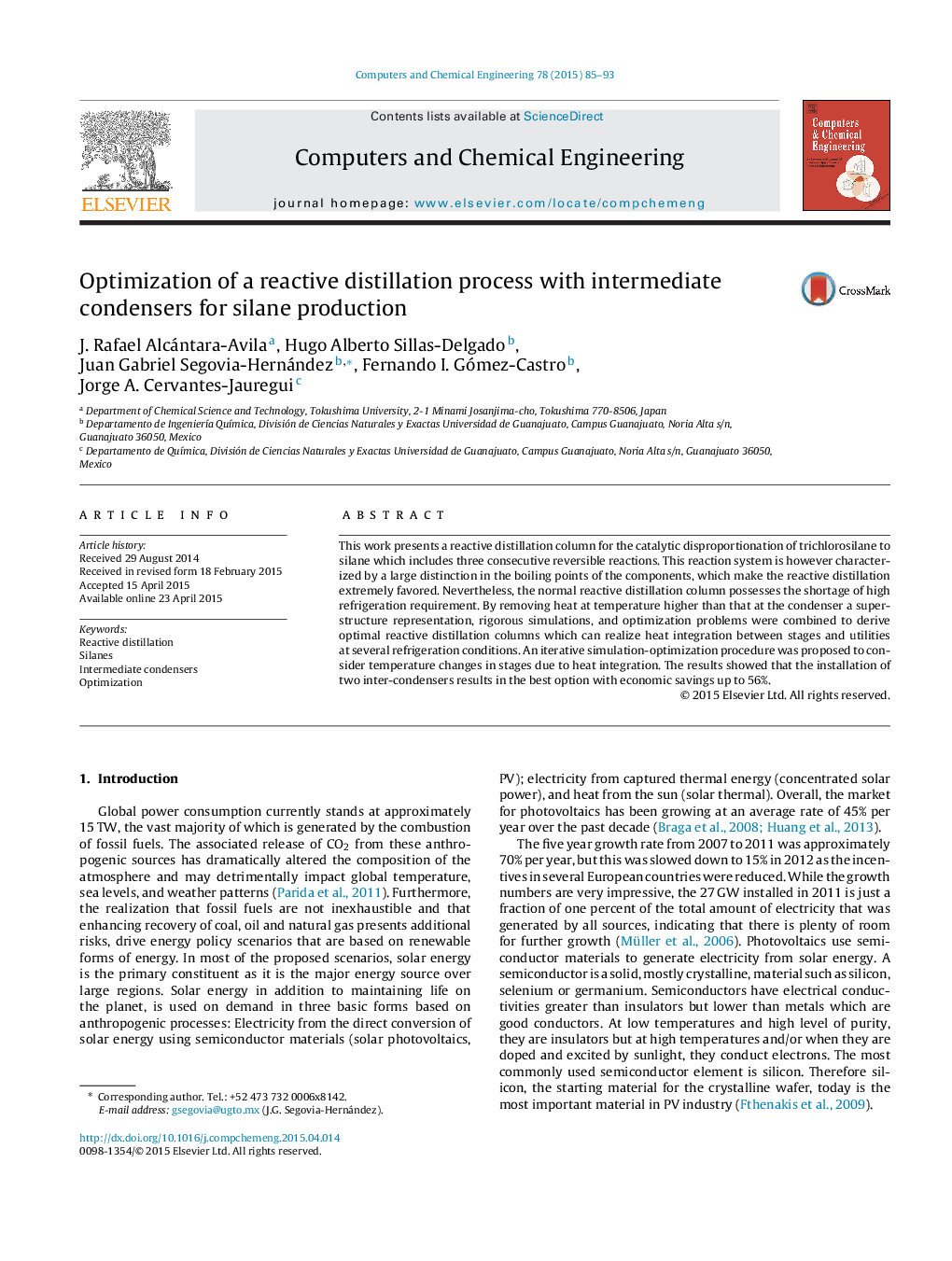| Article ID | Journal | Published Year | Pages | File Type |
|---|---|---|---|---|
| 6595404 | Computers & Chemical Engineering | 2015 | 9 Pages |
Abstract
This work presents a reactive distillation column for the catalytic disproportionation of trichlorosilane to silane which includes three consecutive reversible reactions. This reaction system is however characterized by a large distinction in the boiling points of the components, which make the reactive distillation extremely favored. Nevertheless, the normal reactive distillation column possesses the shortage of high refrigeration requirement. By removing heat at temperature higher than that at the condenser a superstructure representation, rigorous simulations, and optimization problems were combined to derive optimal reactive distillation columns which can realize heat integration between stages and utilities at several refrigeration conditions. An iterative simulation-optimization procedure was proposed to consider temperature changes in stages due to heat integration. The results showed that the installation of two inter-condensers results in the best option with economic savings up to 56%.
Related Topics
Physical Sciences and Engineering
Chemical Engineering
Chemical Engineering (General)
Authors
J. Rafael Alcántara-Avila, Hugo Alberto Sillas-Delgado, Juan Gabriel Segovia-Hernández, Fernando I. Gómez-Castro, Jorge A. Cervantes-Jauregui,
